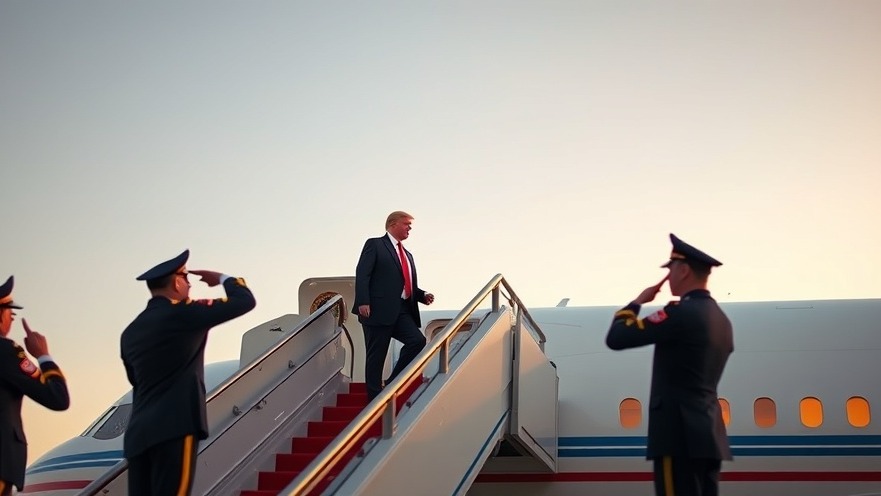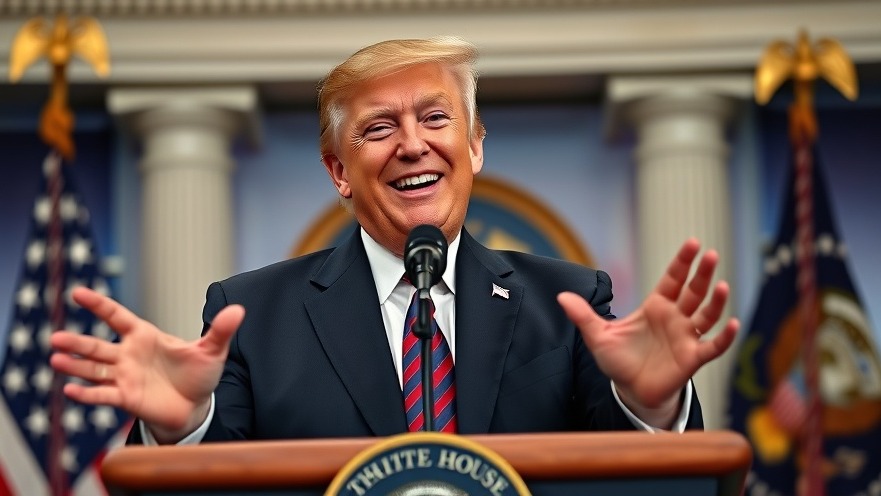
Trump’s Cartel Order: A Controversial Move or Necessary Action?
In a surprising turn of events, President Trump's recent order to employ military force against specific drug cartels in Latin America has reignited concerns about U.S. interventionism in the region. Just over a decade ago, a wave of optimism washed over Latin America as the Obama administration declared an end to aggressive military policies associated with the Monroe Doctrine. This doctrine, which justified U.S. engagement in Latin American affairs through military action, had helped set the stage for years of conflict. Now, with Trump's order, many Latin Americans are left to grapple with the prospect of a return to those troubling days.
Historical Context: The Legacy of U.S. Intervention
For those in Latin America, U.S. military interventions are not mere points in history; they are painful echoes of colonialism, leaving behind scars that have influenced public sentiment. From the CIA-backed coup in Chile in 1973 to America's involvement in the El Salvador civil war, many nations in the region have endured the consequences of foreign meddling. The revival of interventionist rhetoric and military presence could reignite tensions and breed distrust in governments already dealing with complex internal challenges, pushing them to reinforce their sovereignty against perceived threats.
Social Connection: Why Intervention Sparks Outrage
Public opinion in various Latin American countries reflects a deep-seated aversion to foreign military presence, which many see as a breach of their sovereignty. Despite widespread issues with drug cartels and rampant violence, placing forces on foreign soil raises fears about potential backfire. As Patricio Endara from Ecuador expressed, even those who favor action against crime do not want foreign soldiers on their land. This highlights the complex intersection of national pride, history, and current realities surrounding violence.
Parallel Example: Lessons from Colombia’s Drug Wars
The situation in Colombia serves as a cautionary tale. Following a long U.S. intervention strategy that included military and financial support to eradicate cartels, the country saw increased violence and displacement of communities. The Plan Colombia initiative did, admittedly, yield some successes, such as the dismantling of key drug cartels. However, it also spawned serious human rights violations and did little to address the socioeconomic factors driving the drug trade. The fears surrounding Trump's order are echoed in Colombia’s experiences, giving rise to skepticism about efficacy and ethical implications.
Future Predictions: What Would U.S. Military Presence Mean?
As leaders in Latin America process Trump's directive, concerns surrounding military deployments linger. If these interventions were to become a reality, we could witness significant shifts in political alliances. Countries like Mexico, already battling violent drug-related issues, may feel pressured to welcome U.S. troops for support, risking public backlash. The potential for increased anti-American sentiment is a tangible risk, potentially alienating populations that rely on their governments for solutions.
Counterarguments: The Case for Action Against Drug Trafficking
Conversely, one could argue that the U.S. has a responsibility to address the drug crisis that significantly affects both domestic and international policies. The argument for intervention hinges not just on tackling cartels but on stabilizing communities and fostering a safe environment for economic and social development. This perspective, while optimistic, must grapple with the historical baggage attached to U.S. military presence in Latin America.
Unique Benefits of Understanding This Situation
For the average American, grasping the implications of Trump's military directive is vital. Understanding historical context allows for a more nuanced view of current events in America and their profound effect on international relations. Moreover, it prompts discussions on ethical foreign policies and the repercussions of interventionist strategies.
Conclusion: The Call for Caution
In summary, as Trump’s orders invite comparisons to past U.S. policies, it is crucial to weigh the consequences carefully. While the intentions may aim to curb drug trafficking, heavy-handed tactics could fuel further resentment and violence in a region still healing from intervention-induced wounds. Let’s encourage an approach that champions dialogue, cooperation, and respect for sovereignty, ensuring that history does not repeat itself.
 Add Element
Add Element  Add Row
Add Row 



Write A Comment